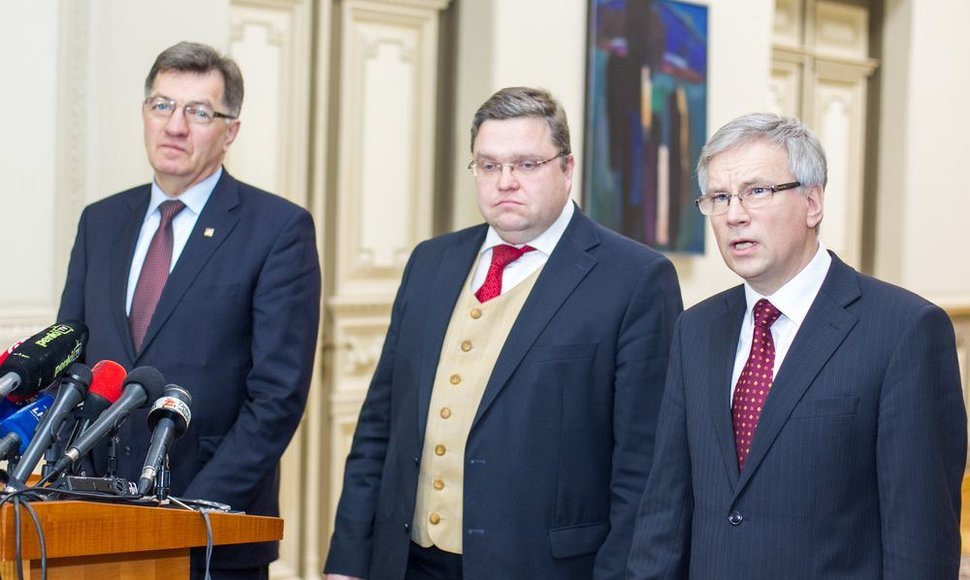"We will pursue a very ambitious plan, which is to introduce the euro in 2015," he told reporters after meeting with Vitas Vasiliauskas, governor of the central bank, to discuss the country's possibilities for joining the eurozone.
Butkevičius said that the government will not take any "coercive" measures.
Vasiliauskas also said that there would be no "artificial" measures.
"We are confident that there will be no need for any artificial measures," he said when asked about Latvia's measures to curb growth in prices. He added that there will be no such measures, including the changing of the VAT rate, which is what Latvia has done.
The prime minister said that a special working group will monitor the country's compliance with the Maastricht criteria.
Vasiliauskas said: "We see a window (of opportunity) for meeting the inflation criterion." He did not comment on whether he thinks it possible for Lithuania to join the single currency in 2015.
"I'm really not inclined to talk about dates. The prime minister said what the aim is and this is it. The direction is clear (and) we are moving," the governor said.
Economists at the central bank said last November that they saw no possibilities for Lithuania to have the euro in 2015. Some analysts have noted that Lithuania must work harder not only in making forecasts, but also in seeking political backing in Brussels.
Analysts at Swedbank, one of Lithuania's biggest banks, have said recently that the prospects of Lithuania joining the euro are dim up to 2017.
Lithuania's bid to join the euro in 2007 was rejected because its inflation exceeded the Maastricht limit.
The so-called Maastricht criteria for introducing the euro are the following:
HICP inflation (12-months average of yearly rates) must not be more than 1.5 percent higher than the average of the similar HICP inflation rates in the 3 EU member states with the lowest inflation.
Government budget deficit must not exceed 3 percent of GDP.
The ratio of gross government debt to GDP must not exceed 60 percent. In Lithuania, it currently stands at 38 percent.
Applicant country should have joined the exchange-rate mechanism (ERM / ERM II) and should not have devalued its currency during the last two years.
Long-term interest rates on government bonds must be no more than 2 percent higher than the average in three best-performing EU member states.
Finance Minister Rimantas Šadžius says that Lithuania easily meets the sovereign debt criterium, while budget deficit should not be a problem either, with fiscal discipline legislation in effect.
"The Maastricht criteria are not some arbitrary tools to torture those countries that wish to adopt the euro. Meeting the criteria means that the country's economy is developing sustainably and rests on solid bases. These are the main goals of this government. [...] If we prevent the real estate bubble from inflating, if we rein in on the black market, if we put the taxation system in order, I think that the country will meet the criteria, showing that we are ready to adopt the euro," Šadžius said.
President won't comment
Lithuania’s President Dalia Grybauskaitė refused to comment on prime minister's declarations that Lithuania would seek to adopt the euro in 2015.
“Without making any comments about any specific statements, I would like to state that preparations for the adoption of the euro are very complicated. The process takes at least two years or two years and a half and it is necessary to ensure coordination and agreement on the action plan among all relevant structures, all structures of the authorities, including the parliament, the president, and banks as well. I have not heard or seen either the plan or the time so far,” Grybauskaitė told reporters on Friday when asked to comment about Butkevičius’ statements that Lithuania could adopt the single currency as early as in 2015.












